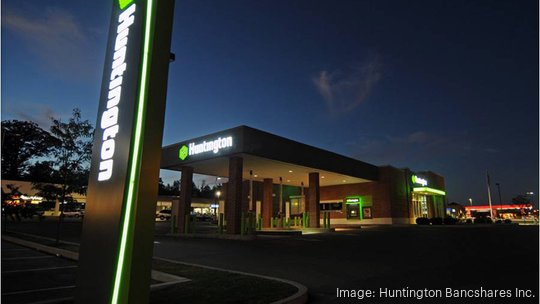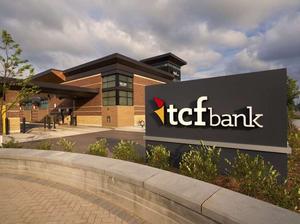
Huntington Bank could lose $1 million per month on its new short-term no-cost credit lines, CEO Steve Steinour said, but gain the loyalty of consumers who expect easy transactions from their phones and appreciate help on emergency expenses.
Standby Cash, the Columbus bank's first all-digital product, provides up to $1,000 instant line of credit to existing customers, with no interest or fees if they sign up for automatic repayments over three months. If not, interest is 1% monthly, working out to a 12% annual rate – about 1/10 the average rate after interest and fees from payday loans in Ohio, according to the state Department of Commerce.
"We will lose money on this," Steinour said in an interview. "We believe we’re creating a much more loyal customer base – even if they never use it. The illustration that we’re looking out for them is a very powerful concept."
The line of credit announced this week quietly debuted as a feature in the bank's mobile app a week ago, and branch tellers helped direct customers to it. About 90% of the first users chose the no-cost auto repayments.
While banks are seeing strong rebounds in consumer spending and loans since the coronavirus pandemic, many customers still struggle with unemployment and uncertainty, Steinour said. Last fall Huntington eased overdraft fees in response.
"There are neighborhoods in Columbus and rural communities that just have been very hard hit by this pandemic," he said. "While it’s an overall recovery, it’s an uneven one. Forty percent of Americans don’t have $400 in their savings account, so if a car breaks down or something it’s a huge problem for them."
Steinour asked Bryan Carson, deposit product director, to develop ways to help customers quickly, and the instant credit line by far was the standout in consumer testing.
Eligibility for the credit line is based solely on the customer's deposit history with Huntington, criteria that are more transparent and egalitarian than a credit score, Carson said.
"We don’t use a credit score, but the line of credit if used appropriately can help build the credit score," Steinour said.
Huntington's first digital-only product also is similar to those of growing financial technology companies such as Klarna, creating online installment payments for retailers, or Upstart, an AI platform for banks to offer personal loans to more consumers at lower rates. Both have large Columbus offices.
Financial technology startups represent “a call to arms on digital capabilities” for traditional banks, Steinour said. The pandemic exponentially increased online and mobile transactions, and customers want to keep it that way. Huntington's staff developers created the instant credit line as a feature within the existing third-party mobile app.
"We can do things on a digital basis with a very low cost of transaction, which sets up the ability to do something like (Standby Cash)," Steinour said. "The fintechs can't do this. They don’t have the customers and they don’t have the checking accounts, but we do."
Huntington Bancshares Inc. has assets of $123 billion as of March 31, soon to grow to $175 billion with next week's expected acquisition of Detroit-based TCF Bank.





